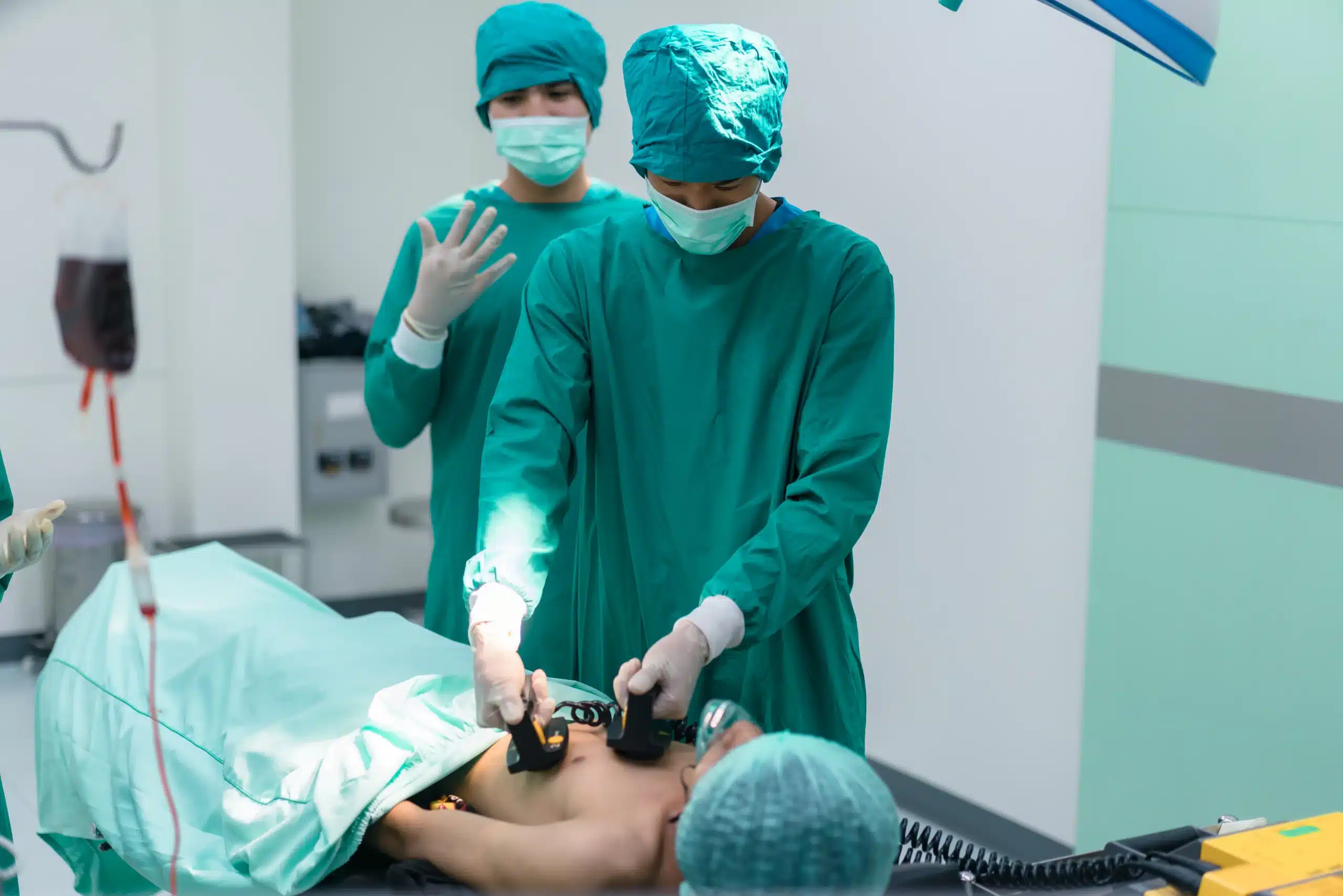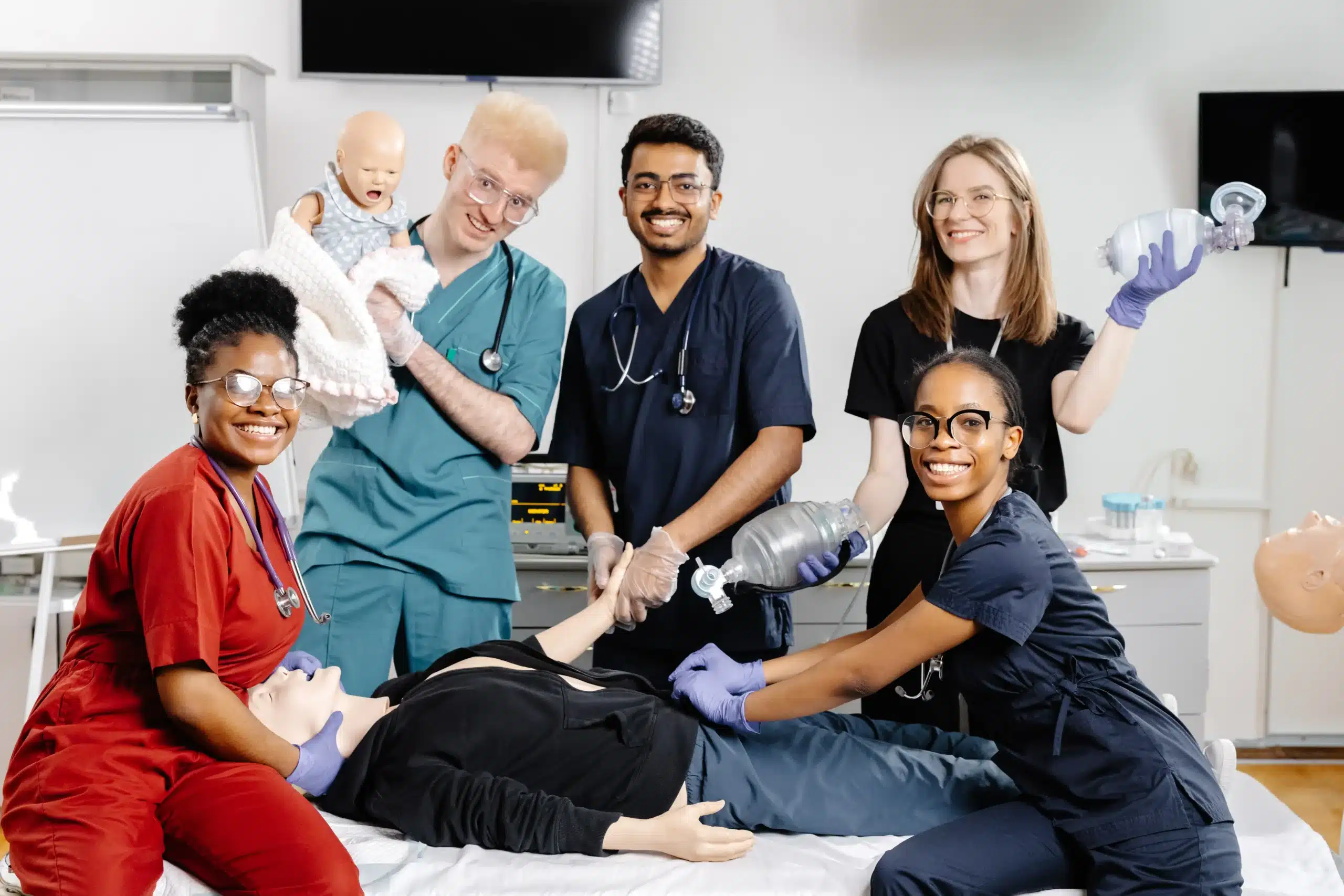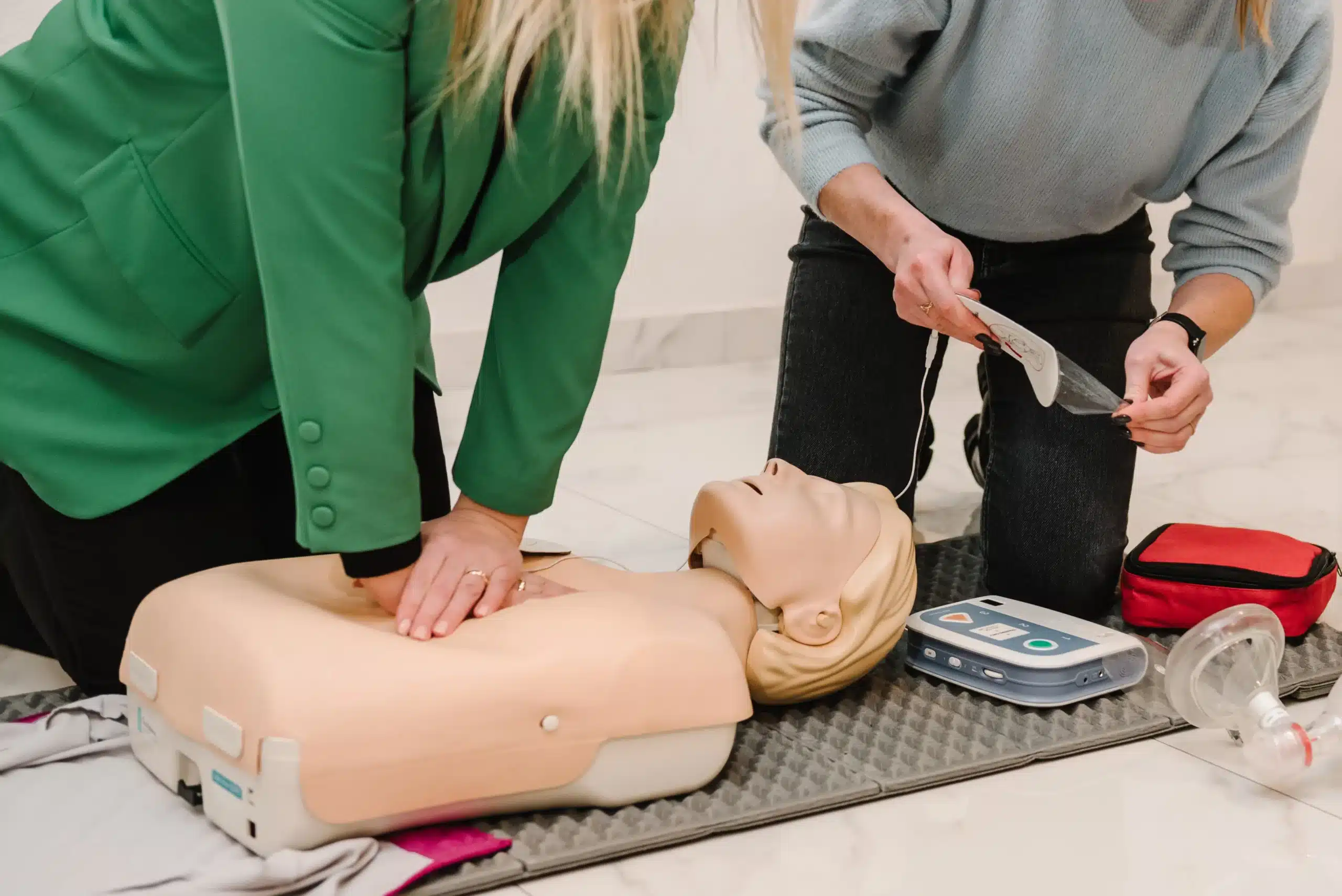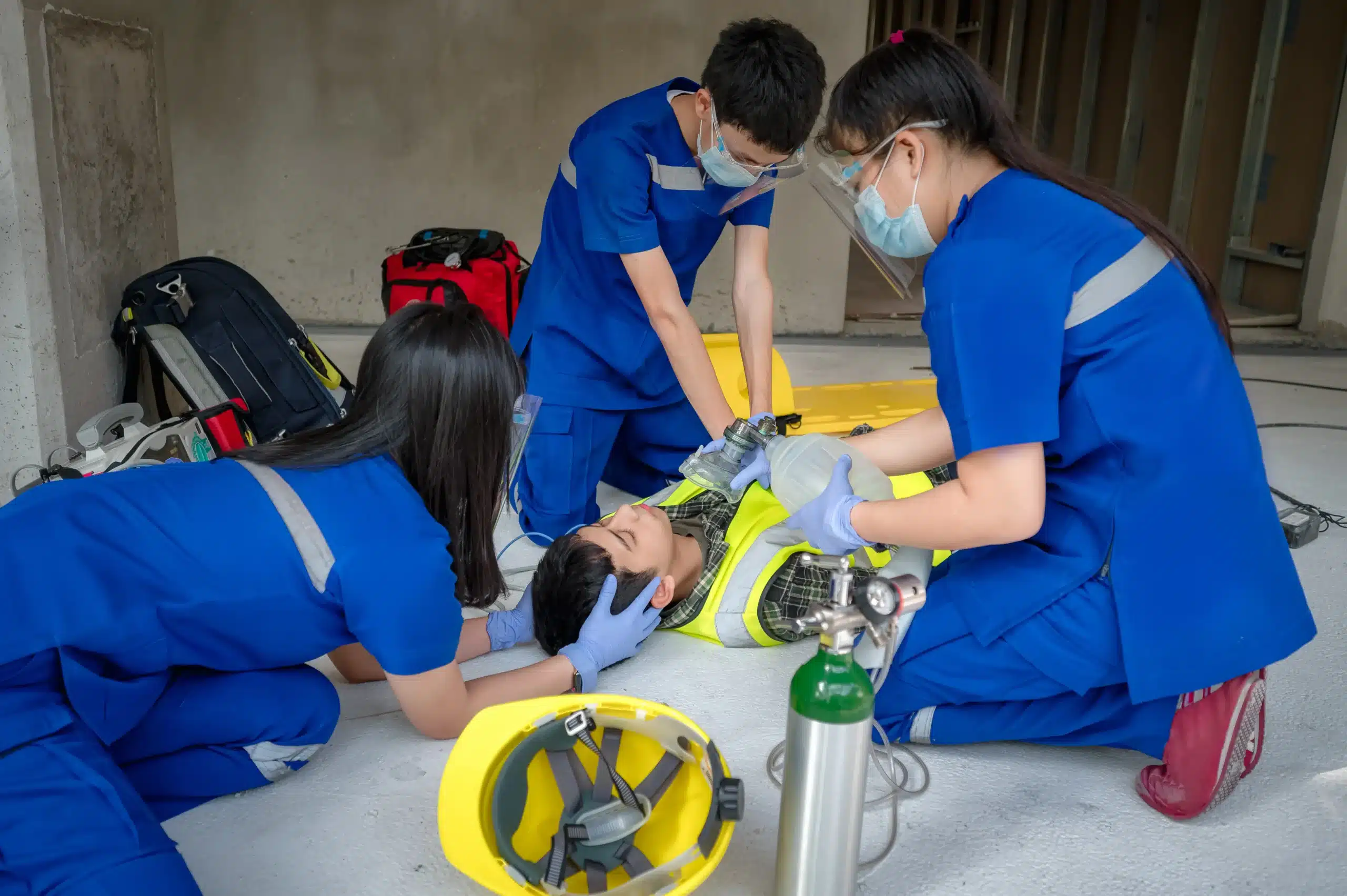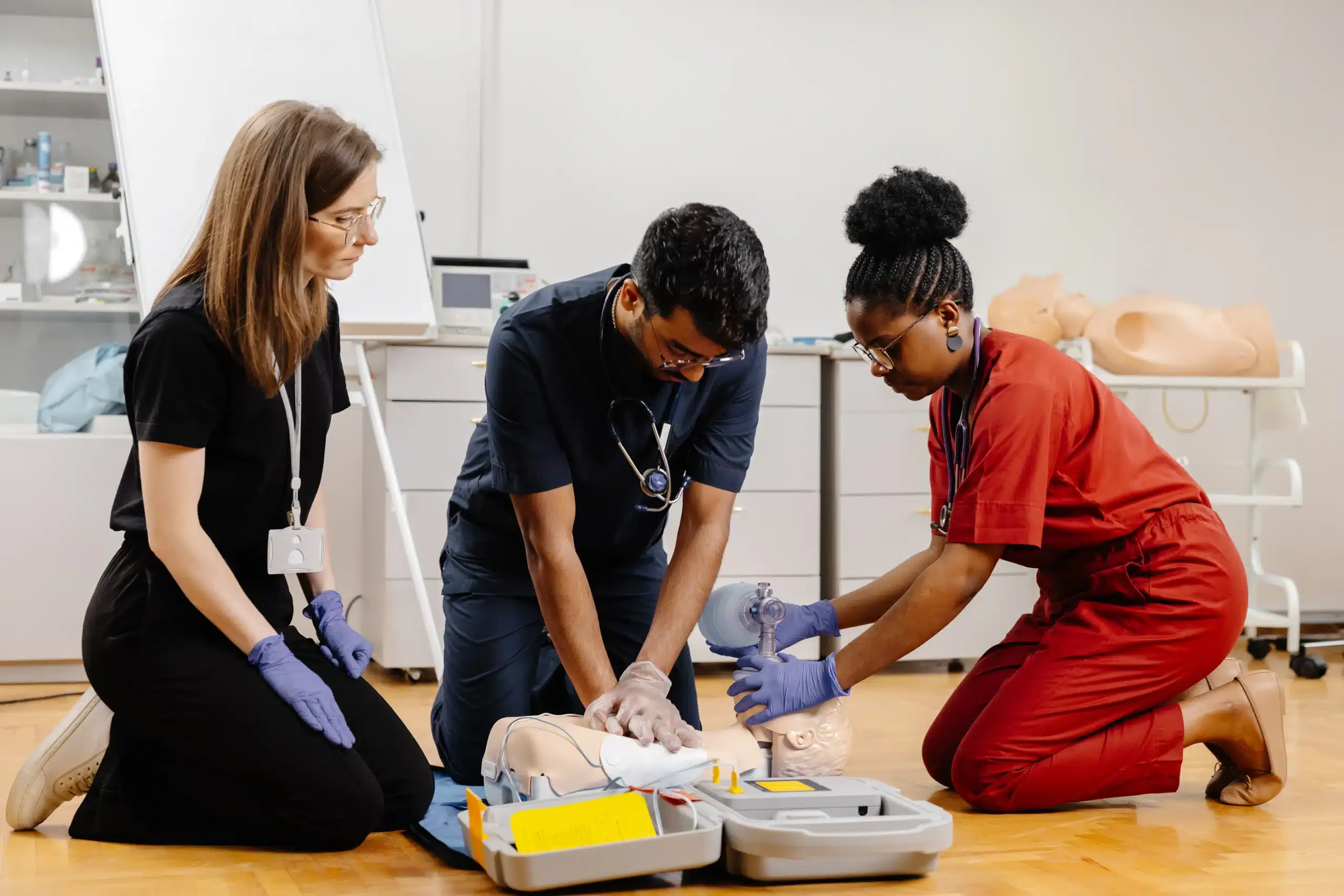Working in healthcare often means facing unexpected challenges, and pediatric emergencies are among the most demanding. Having the right training can make all the difference in these critical situations. Pediatric Advanced Life Support (PALS) certification empowers healthcare providers with the specialized skills and knowledge needed to respond effectively to pediatric emergencies. This article explores the significance of pediatric advanced life support in Concord, providing a detailed guide to PALS certification, training components, and the various benefits it offers. Whether you’re a seasoned healthcare professional or just starting your career, understanding the value of PALS is crucial for providing optimal care to young patients.
Key Takeaways
- PALS equips you with essential skills for pediatric emergencies: This specialized training provides healthcare providers with the knowledge and techniques to effectively manage life-threatening situations in infants and children, leading to better patient outcomes.
- Select a PALS course that meets your needs: Consider factors like in-person vs. online learning, instructor experience, and course content to find the right fit. Hands-on practice and realistic simulations are crucial for developing confidence and competence.
- Stay current with your PALS certification: Renew your certification every two years and stay informed about the latest guidelines to maintain your skills and provide the highest quality care. This demonstrates your commitment to ongoing professional development in pediatric emergency care.
What is Pediatric Advanced Life Support (PALS)?
PALS Definition and Purpose
Pediatric Advanced Life Support (PALS) is specialized training designed to equip healthcare professionals with the skills to respond effectively to pediatric emergencies. This certification focuses on the critical care of infants and children, providing a systematic approach to assessment, intervention, and stabilization in life-threatening situations. The training covers a wide range of emergencies, from respiratory distress and shock to cardiac arrest and post-resuscitation care. Ultimately, the goal of PALS is to improve outcomes for young patients facing these critical situations.
Why PALS Matters for Concord Healthcare Professionals
For healthcare providers in Concord, PALS certification is essential for ensuring high-quality care for pediatric patients. Investing in this training demonstrates a commitment to evidence-based practices and preparedness for pediatric emergencies. PALS certification is crucial for enhancing the level of pediatric emergency care available locally. Whether you’re a doctor, nurse, or another healthcare professional working with children, PALS empowers you to confidently manage emergencies and contribute to positive patient outcomes. It also helps ensure compliance with healthcare regulations, further strengthening the quality of care provided in Concord. By prioritizing PALS training, Concord’s healthcare community reinforces its dedication to the well-being of its youngest patients.
Key PALS Training Components
PALS is a comprehensive program covering a range of skills necessary for responding to pediatric emergencies. Here’s a closer look at the key training components:
Master Advanced Airway Management
Airway management is critical in pediatric emergencies. PALS training at our Brentwood location equips healthcare providers with the advanced skills to manage airways in infants and children effectively. You’ll learn techniques for opening and maintaining a clear airway, including intubation and other advanced procedures. This training ensures you can provide oxygen and ventilation when a child’s breathing is compromised. For more information, explore our PALS certification course.
Learn Intraosseous Access and Fluid Resuscitation
When intravenous access is difficult, intraosseous access becomes a lifeline. PALS training covers this critical skill, teaching you how to administer fluids and medications directly into the bone marrow. This rapid access is essential for delivering life-saving treatments quickly, especially in young children. The training also emphasizes fluid resuscitation techniques, ensuring you can restore appropriate fluid balance in critically ill children.
Understand Pediatric Pharmacology
Medication dosages and responses differ significantly between children and adults. PALS training delves into pediatric pharmacology, covering the appropriate medications, dosages, and administration routes for various pediatric emergencies. You’ll gain a deeper understanding of how these medications work and how to use them safely and effectively in a crisis.
Perform Rapid Cardiopulmonary Assessment
Quick and accurate assessment is crucial in emergencies. PALS teaches you how to perform a rapid cardiopulmonary assessment, allowing you to identify and address life-threatening conditions promptly. This skill helps you evaluate a child’s respiratory and circulatory status, recognize signs of distress, and make informed decisions about treatment. Consider our NRP course for related training.
Manage Special Resuscitation Situations
PALS training goes beyond the basics, preparing you for a variety of special resuscitation situations. These include neonatal resuscitation, trauma, drowning, poisoning, anaphylaxis, and cardiac conditions. You’ll learn specific protocols and interventions for each scenario, equipping you to handle complex pediatric emergencies with confidence. For teams, we offer group discounts on our courses. You can also find additional resources in our Northern California CPR directory.
PALS Certification Options in Concord
Finding the right Pediatric Advanced Life Support (PALS) certification course is crucial for healthcare providers in Concord. Here’s a breakdown of some prominent options:
Safety Training Seminars
Safety Training Seminars offers AHA-certified PALS courses alongside other essential certifications like BLS, ACLS, CPR, and First Aid. Their streamlined approach is designed to fit the busy schedules of healthcare professionals and other individuals seeking these vital skills. Serving the wider Brentwood, Antioch, and Concord areas, they provide convenient access to training. Visit their website for course schedules and pricing.
Concord CPR Classes
Concord CPR Classes provides American Heart Association (AHA) PALS certification with flexible learning options, including online and in-person classes. This allows you to choose the format that best suits your needs and schedule. Their website offers details on upcoming courses and registration.
Pulse Protect CPR
Pulse Protect CPR offers PALS renewal courses for healthcare providers needing to recertify. The course includes pre-course work to ensure participants are well-prepared. Contact them directly for pricing and scheduling.
American Heart Association Training Centers
The American Heart Association (AHA) offers PALS courses through its network of training centers. These courses adhere to the latest AHA guidelines and equip healthcare providers with the skills to manage pediatric emergencies. Locate nearby AHA training centers and explore course options on their website.
PALS Course Formats and Duration
Choosing the right PALS course format depends on your learning style and schedule. Thankfully, there’s flexibility to fit your needs. Let’s break down the different options:
In-Person Classes
Traditional in-person PALS courses offer a structured learning environment led by experienced healthcare professionals like nurses, EMTs, paramedics, and firefighters. This format provides immediate feedback and opportunities for real-time interaction with instructors and peers. For those who thrive in a classroom setting and value direct communication, in-person training can be a great option. Our in-person PALS courses provide hands-on training and personalized instruction.
Online Learning
Online PALS certification offers a convenient alternative for busy professionals. Accessing course materials anytime, anywhere, allows you to learn at your own pace and revisit content as needed. This format is ideal for those juggling multiple commitments or who prefer self-directed learning. Many online courses, like our hybrid PALS option, combine online learning with an in-person skills session.
Hands-On Skills Sessions
Regardless of whether you choose an online or in-person course, a hands-on skills session is crucial for PALS certification. This session focuses on practicing essential skills like airway management, intravenous access, and simulated emergency scenarios. The skills check typically takes between 15 and 30 minutes and allows instructors to evaluate your proficiency and provide personalized feedback.
Typical Course Length
The initial PALS course typically requires around 10 hours to complete, while the renewal course is shorter, usually around 6 hours. The time commitment varies depending on the chosen format and individual learning pace. For example, a hybrid course might involve a few hours of online coursework followed by a shorter in-person skills session. Check our PALS course page for specific timeframes and scheduling options.
PALS Costs and Prerequisites
Getting your Pediatric Advanced Life Support (PALS) certification is an investment in your career and the children you care for. Understanding the costs and requirements upfront helps you prepare and plan accordingly. Here’s a breakdown of what you need to know:
Initial Certification Fees
Expect the initial PALS certification to cost around $290. This generally covers the online portion of the course, the in-person skills session, and your official certification card. For a more precise price, check with your chosen provider, like Concord CPR Classes, as fees can vary slightly.
Renewal Costs
Renewing your PALS certification is less expensive than the initial certification, typically running around $195. Staying current with your PALS certification is essential for maintaining your skills and complying with workplace standards.
Materials and Textbook Expenses
Factor in the cost of any required materials or textbooks. Some providers include these in their course fee, while others may require you to purchase them separately. Providers like Advanced Medical Certification may offer bundled discounts on study materials for various certifications.
BLS Certification Requirement
A current Basic Life Support (BLS) certification is a prerequisite for PALS. Make sure your BLS certification is up-to-date before enrolling in a PALS course, as it provides the foundational knowledge necessary for advanced pediatric care.
Healthcare Provider Status
PALS is designed for healthcare professionals who regularly encounter pediatric emergencies. While others can pursue PALS certification, it’s specifically geared towards those working in healthcare settings. This focus ensures the training is relevant and directly applicable to the challenges you face on the job. PALS renewal is also geared towards healthcare providers.
Pre-Course Self-Assessment
Most PALS courses require a pre-course self-assessment and some preparatory work before the class begins. This helps you gauge your existing knowledge and identify areas where you might need extra focus. Completing the pre-course work ensures you’re ready to get the most out of your training.
Benefits of PALS Certification
Earning your PALS certification offers a range of benefits, from enhancing your career prospects to improving patient care. Let’s explore some key advantages:
Improve Patient Outcomes
PALS certification equips healthcare providers with the knowledge and skills to manage pediatric emergencies effectively. This specialized training focuses on the distinct physiological differences between children and adults, enabling quicker recognition and response to critical situations. By mastering these skills, certified professionals contribute directly to improved patient outcomes and increased survival rates. The American Heart Association emphasizes the vital role of PALS training in enhancing pediatric emergency care. For more information on PALS and its impact, visit our PALS page.
Advance Your Career
Holding a PALS certification demonstrates a commitment to advanced pediatric care, making you a more competitive candidate in the healthcare field. It can open doors to new opportunities and specializations, potentially leading to higher earning potential and career advancement. PALS training covers a comprehensive range of skills, from basic life support to advanced airway management, enhancing your overall expertise.
Comply with Healthcare Regulations
Many healthcare facilities require PALS certification, especially for roles involving direct patient care for infants and children. Staying current with your certification ensures you meet these requirements and maintain your eligibility for desired positions. Maintaining certifications like PALS demonstrates your professionalism and dedication to providing high-quality care. Learn more about various healthcare training options, including EMSA Child Care Health & Safety, on our website.
Gain Confidence in Emergencies
Beyond the technical skills, PALS certification instills confidence in healthcare providers, allowing them to remain calm and decisive during high-pressure situations. This confidence translates to more effective leadership and teamwork during emergencies, ultimately contributing to better patient care. Knowing you have the training to handle critical pediatric situations empowers you to act swiftly and efficiently. Consider exploring our discount group class options for a supportive learning environment.
Choose the Right PALS Course in Concord
Finding the right Pediatric Advanced Life Support (PALS) course in Concord requires careful consideration. Don’t just grab the first available class—take the time to research and select a program that truly meets your needs.
Factors to Consider
PALS certification equips healthcare providers with essential knowledge and skills to manage pediatric emergencies. When choosing a course, prioritize programs that offer hands-on training and realistic simulations. This practical experience builds confidence and competence in responding to real-life scenarios. Consider your learning style and schedule. Do you prefer in-person instruction or the flexibility of online learning? How much time can you dedicate to studying and attending classes? Consider the location and accessibility of the training facility. Safety Training Seminars offers courses in Brentwood, conveniently serving Antioch, Brentwood, and Concord.
Compare Course Offerings
Concord offers a variety of American Heart Association PALS courses. Explore different providers and compare course content, schedules, and teaching methods. Look for programs that align with the latest American Heart Association guidelines and emphasize practical application. Reading reviews and testimonials can offer valuable insights.
Check Instructor Qualifications
The expertise of your instructor significantly impacts your learning. Look for PALS courses taught by experienced healthcare professionals with a strong background in pediatric emergency care. Instructors should be certified by the American Heart Association and possess excellent communication skills. A qualified instructor can provide clear explanations and offer personalized guidance.
Verify Accreditation and Recognition
Ensure the PALS course you choose is accredited by the American Heart Association. This guarantees the course meets the highest standards. Verify the course format, whether online or in-person, aligns with industry standards and is accepted by your employer or licensing board.
Prepare for Your PALS Certification
Getting ready for your PALS certification involves more than just showing up on the day. Thorough preparation can significantly impact your success. Here’s how to get ready:
Gather Study Materials and Resources
PALS certification equips healthcare providers with the skills to manage pediatric emergencies. Start by gathering the recommended PALS study materials. This often includes the PALS Provider Manual and any supplementary resources provided by your chosen training center, like Safety Training Seminars. It’s also helpful to explore online resources, such as practice quizzes and videos, to reinforce key concepts. Understanding why PALS certification is crucial for healthcare providers will help you approach the course with confidence.
Practice Scenarios
PALS training covers a wide range of skills, from advanced airway management to resuscitation techniques. Practicing these skills through realistic scenarios is essential. Many training centers incorporate simulations into their courses, offering a safe environment to apply your knowledge. Consider forming study groups with fellow participants to run through various emergency scenarios. This hands-on practice will build your muscle memory and improve your reaction time in real-life situations.
Tips for Course Success
Going into your PALS course prepared can make a big difference. Before the course, review basic life support (BLS) skills, as a strong BLS foundation is essential for PALS. Familiarize yourself with the PALS algorithms and treatment protocols. During the course, actively participate in discussions, ask questions, and take detailed notes. Remember, PALS certification goes deeper than basic CPR training, focusing specifically on pediatric emergencies. Even experienced healthcare providers benefit from the updated protocols and techniques taught in these courses. Don’t underestimate the value of this specialized training. Approaching the course with a clear understanding of its importance and a commitment to learning will set you up for success. Addressing some common misconceptions about PALS can also be beneficial.
Maintain Your PALS Certification
Keeping your PALS skills sharp is crucial for providing the best possible care to young patients. This section covers how to maintain your certification, stay current with guidelines, and ensure you’re always prepared for pediatric emergencies.
Certification Validity
PALS certification, unlike some other credentials, isn’t a lifetime achievement. It’s valid for two years. This timeframe ensures that healthcare providers regularly refresh their knowledge and skills, keeping pace with evolving medical practices. Because PALS covers more advanced procedures than a basic life support (BLS) certification, maintaining this two-year cycle is essential for delivering effective care in pediatric emergencies. Knowing your certification’s expiration date helps you plan for renewal and avoid any lapses in your qualifications.
Renew Your PALS Certification
Renewing your PALS certification is a straightforward process. Before your certification expires, register for a PALS renewal course. These courses update your knowledge and skills based on the latest American Heart Association guidelines. Safety Training Seminars offers PALS renewal courses in Brentwood, making it convenient for local healthcare professionals to stay current. Check our website for upcoming courses and secure your spot. Don’t let your certification lapse—timely renewal demonstrates your commitment to providing high-quality pediatric care.
Stay Updated on Current Guidelines
Medical best practices are constantly evolving, and staying updated is key to providing effective care. PALS guidelines are periodically revised to reflect the latest research and advancements in pediatric emergency care. Regularly reviewing these updates ensures you’re equipped with the most current knowledge and techniques. Resources like the American Heart Association website offer valuable information on the latest PALS guidelines. Staying informed enhances your skills and reinforces your commitment to delivering the best possible care to young patients in Concord and the surrounding areas.
Common PALS Misconceptions
It’s easy to get tripped up by some common misunderstandings surrounding PALS certification. Let’s clear up a few of these so you can approach your training with confidence.
Clarify PALS Scope and Importance
One frequent misconception is that Pediatric Advanced Life Support (PALS) certification is only necessary for healthcare providers working in hospitals or emergency rooms. The truth is, PALS equips anyone working with children—from school nurses and camp counselors to daycare providers and paramedics—with the skills to manage pediatric emergencies, wherever they may occur. While basic CPR training is valuable, it doesn’t provide the same depth of knowledge and specialized techniques covered in a PALS course. PALS certification offers comprehensive training that goes beyond basic life support, focusing on the specific physiological differences and needs of infants and children. This specialized knowledge is crucial for effectively responding to pediatric emergencies and improving patient outcomes.
Overcome Certification Challenges
Another misconception is that experienced healthcare providers don’t need PALS certification. Even seasoned professionals benefit from the structured learning and skill practice that PALS training provides. It reinforces best practices, introduces updated guidelines, and helps maintain proficiency in critical procedures. PALS isn’t just about learning techniques; it’s about mastering a systematic approach to pediatric assessment and resuscitation. This includes understanding the nuances of pediatric pharmacology and airway management, as well as developing the critical thinking skills necessary to adapt to dynamic emergency situations. Think of PALS certification as a continuous professional development opportunity, ensuring you stay at the forefront of pediatric emergency care. Safety Training Seminars offers PALS courses designed to meet the needs of healthcare professionals at all levels, providing a supportive learning environment where you can refine your skills and enhance your ability to provide the best possible care for young patients.
Related Articles
- PALS HeartCode Brentwood: A Certification Guide
- BLS ACLS PALS Training: Your Ultimate Guide – Brentwood CPR Classes
- AHA PALS Classes in Brentwood, CA – Brentwood CPR Classes
Frequently Asked Questions
Is PALS certification really necessary for someone who already has BLS certification? While BLS provides a foundational understanding of life-saving techniques, PALS builds upon that foundation with specialized knowledge and skills specifically for pediatric emergencies. It delves deeper into the physiological differences between children and adults, equipping you with advanced techniques for airway management, medication administration, and other critical interventions.
What if I don’t work in a hospital setting? Do I still need PALS? Absolutely. PALS is beneficial for any professional regularly interacting with children, including school nurses, paramedics, camp counselors, and daycare providers. Pediatric emergencies can happen anywhere, and PALS equips you to respond effectively, regardless of the setting.
How long does a PALS certification last, and how do I renew it? PALS certification is valid for two years. To renew, you’ll need to complete a PALS renewal course before your current certification expires. This ensures your skills and knowledge remain up-to-date with the latest guidelines.
What’s the typical cost associated with obtaining or renewing PALS certification? Initial PALS certification generally costs around $290, while renewal courses are typically around $195. Prices may vary slightly depending on the training provider and any included materials.
What are the different learning formats available for PALS certification, and which one is right for me? PALS courses are offered in various formats, including traditional in-person classes, online or blended learning options, and hands-on skills sessions. The best format depends on your learning style, schedule, and preferences. Consider whether you thrive in a classroom setting or prefer the flexibility of online learning. Regardless of the format, a hands-on skills session is essential for demonstrating competency.


